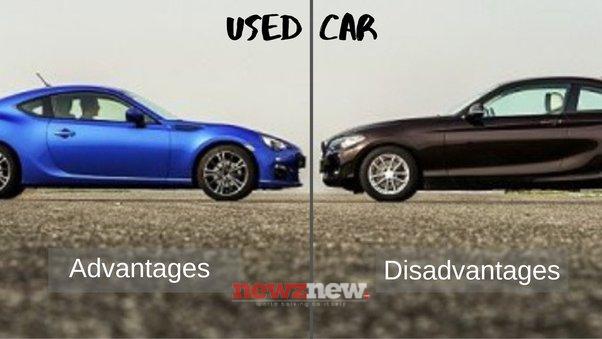Benefits and drawbacks of purchasing used automobiles: When it comes to purchasing a vehicle, deciding whether to buy a new or used one can be challenging. While new automobiles have the attraction of being brand new and under warranty, electric cars for sale in San Diego have their own set of benefits and drawbacks.
 This article examines the benefits and drawbacks of purchasing used automobiles, providing you with essential information to help you make an informed decision.
This article examines the benefits and drawbacks of purchasing used automobiles, providing you with essential information to help you make an informed decision.
Advantages of Buying Used Cars:
Reduced Purchase Price: The most important benefit of purchasing a secondhand automobile is cost savings. Used automobiles are typically less expensive than new cars, allowing you to buy a better model or a higher-end vehicle within your budget.
Depreciation: During the first few years of ownership, new automobiles depreciate rapidly. By acquiring a used automobile, you allow someone else to absorb the early depreciation, ensuring that you lose less value over time.
Lower Insurance Costs: Insurance prices for used automobiles are frequently lower because the replacement cost and repair expenditures are typically lower. This can result in substantial savings throughout the life of the vehicle.
Wider Selection: Buying used gives you access to a broader selection of possibilities, such as discontinued models or vehicles that may no longer be available new. This enables you to locate a vehicle with the precise features, style, or performance that you seek.
Vehicle History Reports: Used automobiles frequently come with full vehicle history reports that describe past owners, accidents, maintenance records, and other information. These reports can assist you in making more informed decisions and avoiding potential problems.
Cons of Purchasing Used Automobiles:
Potential Maintenance and Repair Costs: Compared to new automobiles, used cars may require more maintenance and repairs, especially if they are older or have greater mileage. It is essential to examine the probable expenses of repairs and budget for them.
Limited Warranty Coverage: While some used automobiles may still retain factory warranty coverage, it is often shorter than warranties extended for new cars. This implies you may have to pay for repairs after the warranty expires.
Unknown Condition: Unlike new automobiles, used autos have a history and might vary in condition. To find any hidden flaws, it’s critical to properly analyze a used automobile and consider obtaining a pre-purchase examination by a qualified technician.
Outdated Technology: Older used automobiles may lack the most recent technological developments and safety features seen in newer versions. If having the newest devices and breakthroughs is vital to you, purchasing used ones may not meet your needs.
finance Difficulties: Obtaining finance for a used automobile might be more difficult than for a new car. Interest rates may be higher, and loan durations may be shorter, resulting in possibly larger monthly payments.
Purchasing a used automobile has various advantages, including a cheaper buying price, less depreciation, and a larger selection. It may be a cost-effective option, particularly for budget-conscious consumers who appreciate value for money. However, it is critical to consider prospective maintenance expenses, limited warranty coverage, and the vehicle’s uncertain condition.
Many of the dangers connected with buying used automobiles may be mitigated by doing a comprehensive inspection, acquiring vehicle history data, and seeking professional guidance. Finally, whether to buy new or used relies on your unique demands, budget, and tastes.





